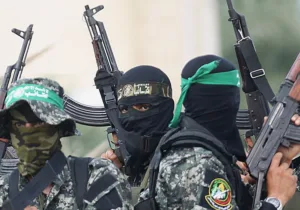We have to be grateful to President Obama for his tirade over the term “radical Islam” and for the subsequent mishandling of the Orlando shooter’s 911 transcript, because at the very least these two events have inspired us to hotly debate the importance of language in how we identify the enemy. One of the more thoughtful of the debates has been going on among the writers of Providence, a welcome new forum which seeks to bring Christian insights to the discussion of U.S. foreign policy. Marc LiVecche, managing editor of Providence, argues that precision in language is critical for success in this fight: “Understanding Radical Islamism for what it is helps us understand that it cannot be negotiated nor reasoned with…” Whereas President Obama and President George W. Bush before him have argued that we should not use terms such as Islamist, radical Islam, or Islamist terrorism because that somehow suggests we see all Muslims as terrorists, LiVecche argues that those terms have the very opposite effect: they draw a clear distinction between those who wish to destroy us and those who live peacefully among us—“it is to separate the beasts into their own fetid coral.” How well put!
Gideon Strauss, an Associate Professor in Worldview Studies, says that even if we might once have usefully used the term “Radical Islam,” we no longer can because Donald Trump has tarnished it forever. Or, as Strauss tweeted, out, “To insist on the phrase ‘Radical Islam’ is to aid & abet @realDonaldTrump’s horde of bigots.” Let’s skip over the fact that Strauss is dismissing millions of Americans as a horde of bigots and start with his reliance on Shadi Hamid as a voice of authority. Shadi Hamid, a senior fellow at the Brookings Institute, has consistently argued that the United States must engage with Islamists and has threatened that if we do not, they will further radicalize into violence. Prior to the 2011 elections in Jordan and Egypt, he argued emphatically that the U.S. must support participation of Muslim Brotherhood candidates in the political process. We did, and it did not work out so well. So Hamid is not the best reference point here.
Strauss acknowledges that “a religious ideology linked to Islam lies at the center of the terrorist cancer,” but still, he insists, we cannot use the term radical Islam to describe it. The problem is that since 1990, when El Sayyid Nosair bombed Uncle Charlie’s, a gay bar in New York City, the United States has in too many cases failed to connect the dots between acts of violence and the motivating ideology of radical Islam. The Islamic angle of the bombing of Uncle Charlie’s bar was not acknowledged until five years after the fact. Had it been acknowledged earlier, the perpetrators would likely have been prevented from carrying out their next attack—the 1993 bombing of the World Trade Center.
Not using terms like radical Islam is an old idea. While policy officials at various levels sought to avoid it for years, it has been official policy since 2008. The term has been formally scrubbed from the national security lexicon since that time, as I have written here. But all the evidence tells us it is a failed policy—and not just because direct attacks on Americans are not abating. Numerous indicators tell us the Islamist crisis, what Strauss acknowledges is the “internecine struggle within the Muslim world,” even if he does not want to name it—is beginning to reach quite frightening proportions. The UN recently announced that the world’s population of displaced people has just reached the unprecedented high of 65.3 million, and more than half of the world’s refugees in 2015 came from countries torn by radical Islam—Syria, Afghanistan, and Somalia. A new congressional report says ISIS now has major affiliates in 6 countries and a recognizable presence in 34 different countries. And that’s just ISIS! Other experts are saying Al Qaeda is back on the rise as well, and those are just two of the many Islamists groups at war with the West, with Christianity, with Israel, and with their fellow Muslims.
Strauss argues that using a term like radical Islam provides a cover for bigots. I would argue first of all that the majority of Trump supporters are not bigots (having all themselves come from immigrants) but just a lot of scared people who see a growing and more murderous threat. But even more importantly, not to use the term radical Islam is a fatal error. As LiVecche so accurately points out, “Words matter, the right words matter most: they ground expectations and help set strategy.” History has proven that not using the right words has failed us….so maybe it’s time to try something else.
—
Katharine C. Gorka is President of the Council on Global Security. She is the co-editor of Fighting the Ideological War: Winning Strategies from Communism to Islamism.
Photo Credit: Remembrance in front of Le Carillon in Paris following the Islamic State attacks in November 2015. Photo by Citron, via Wikimedia Commons.






 Sponsor a student for Christianity & National Security 2024
Sponsor a student for Christianity & National Security 2024